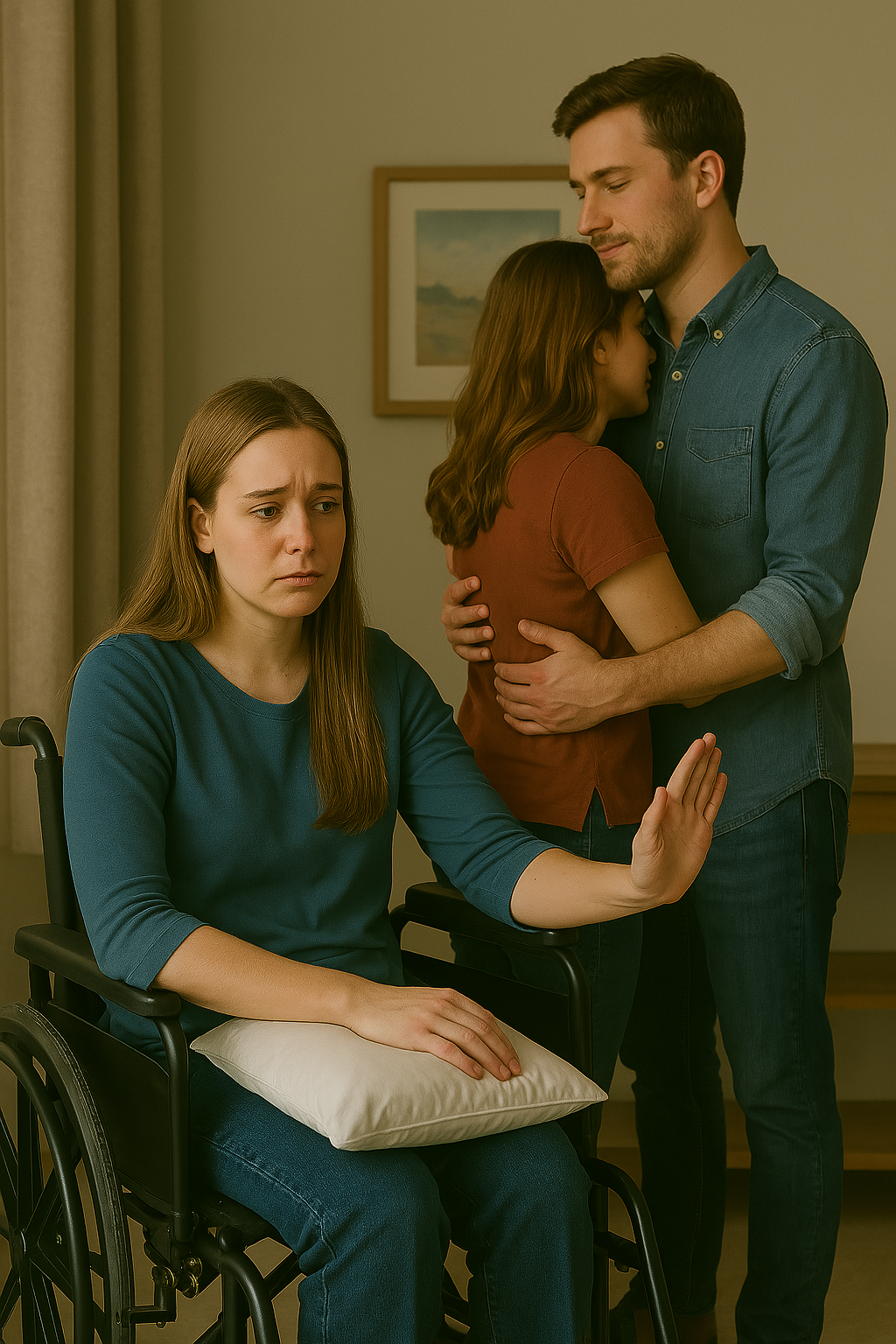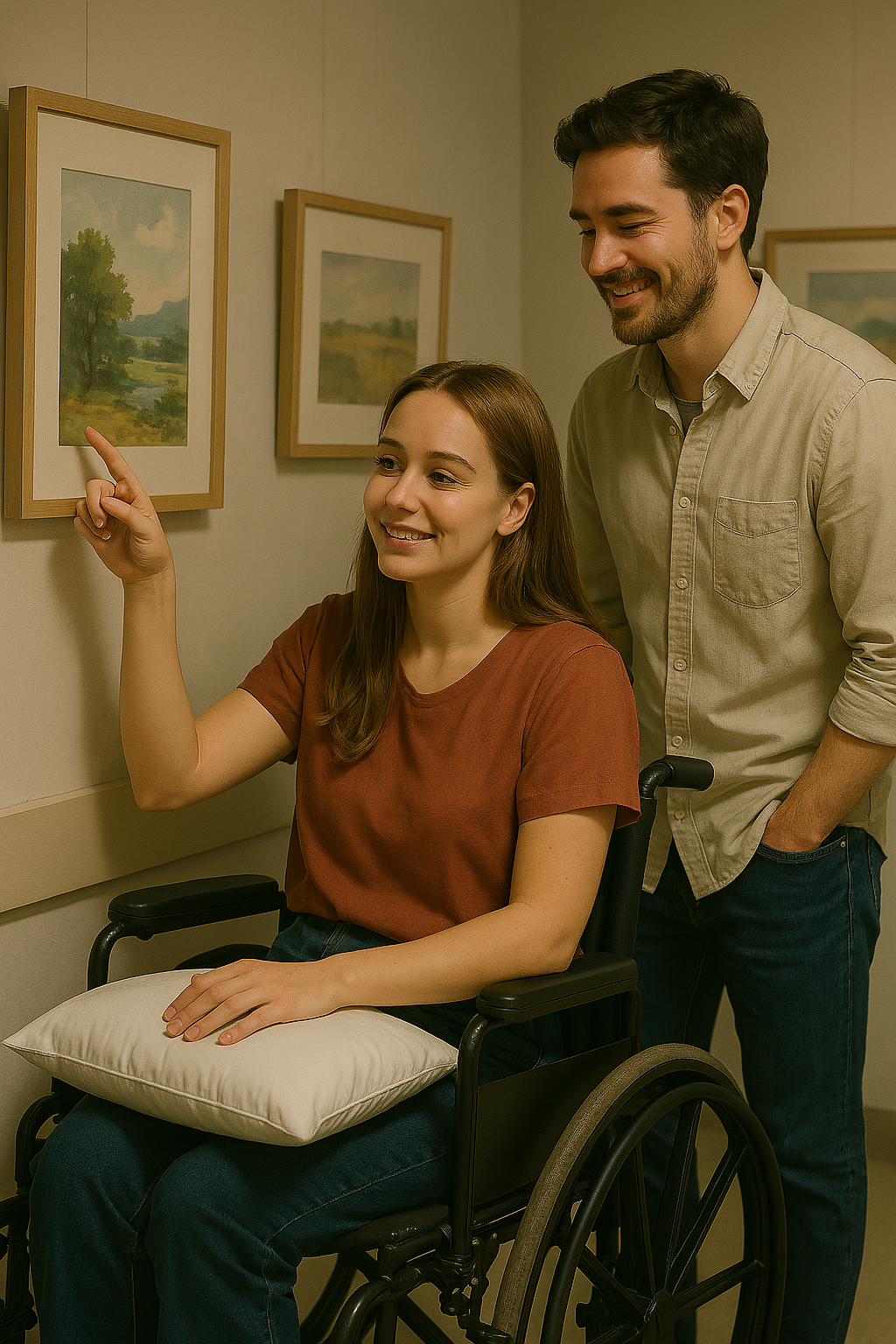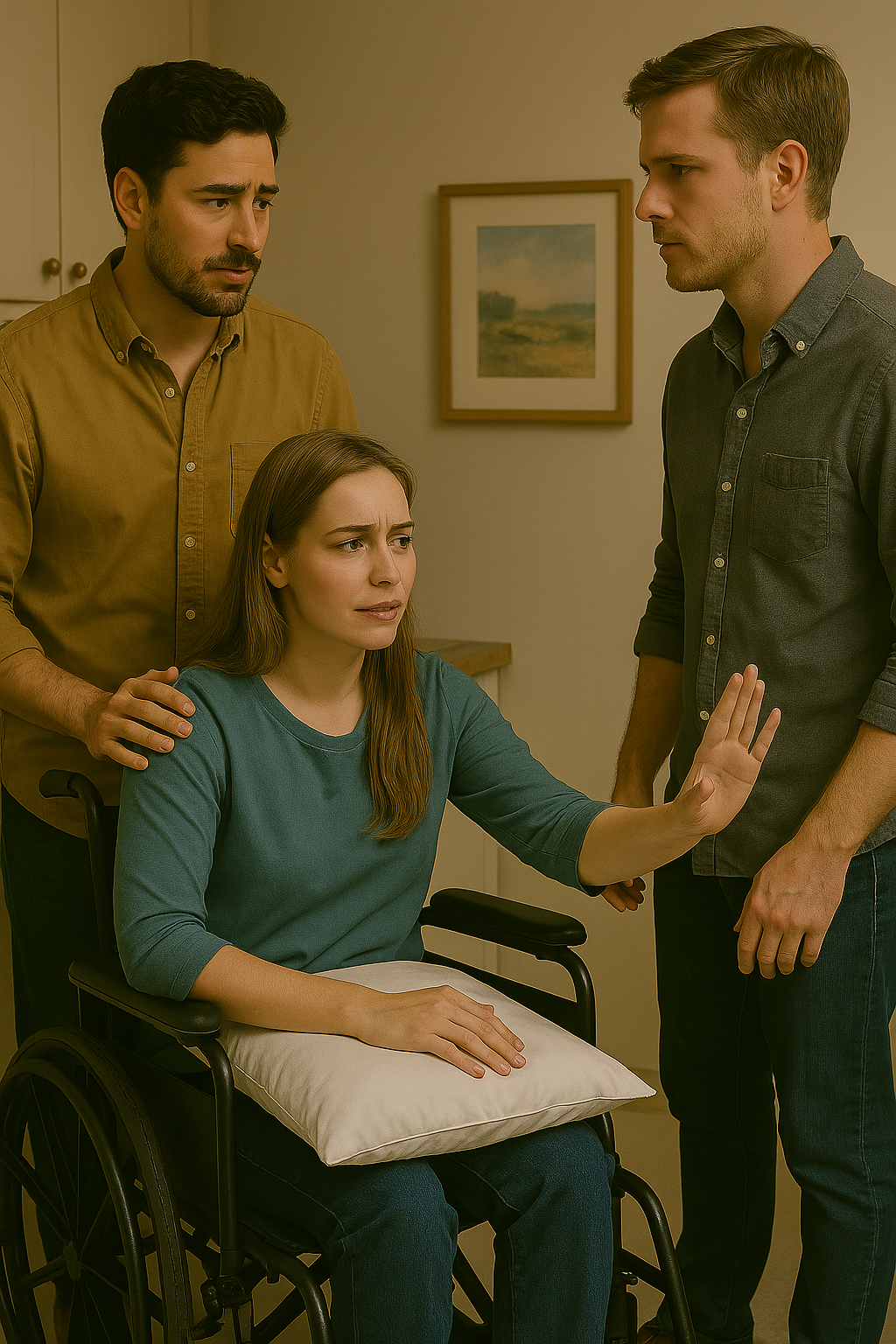“You can’t even walk!” The words rang out like a slap across the kitchen.
Jason stood with his arms crossed, a smirk tugging at his lips. In front of him sat the woman he’d once promised forever to—Clara. And beside her, gently holding her hand, was Noah, the man who had loved her back to life.
Jason’s voice was full of scorn. “And you think you can raise a child like this? In a wheelchair?”
Clara didn’t flinch. She didn’t cry. Instead, she looked him straight in the eye.
“Maybe I can’t walk,” she said. “But I found someone who walked into my life when you walked out.”

Clara had once been the heart of every room—an artist, a dancer, a dreamer. She and Jason had fallen in love when she was twenty-two, both of them working in the creative department of an ad agency. Their romance had been wild and passionate, the kind people talked about with envy.
Two years after they married, everything changed.
A winter storm, black ice, and a head-on collision sent Clara’s car spinning into a ditch. The damage to her spine was irreversible. She woke up to a sterile hospital room, pain in every breath, and the crushing news that she would never walk again.
Jason stayed at first. He brought her flowers, rubbed her hands, and whispered promises. But soon, those visits became shorter. The flowers wilted. The promises faded.
“I can’t do this,” he finally said one evening, standing in the doorway of their bedroom.
“You mean you can’t do me anymore,” Clara had whispered, her voice barely audible.
Jason looked away.

A week later, he left. Not just emotionally, he physically packed a bag and walked out. And not long after that, Clara heard rumors of another woman. A Pilates instructor. Young. Perfect. Mobile.
For months, Clara lay in bed wondering how she would live. She was angry, humiliated, and heartbroken. But something inside her refused to die.
Clara began painting again. At first, just to pass the time. Then to feel something again. Then, because the colors started to feel like pieces of herself coming back.
It was at a local art gallery, a year later, where she met Noah.
He was quiet, a former architect turned art therapist who worked with trauma survivors. He asked her about her work, not about her wheelchair. He complimented her brushwork, not her bravery. He listened. And that was all she needed at first.
He showed up for her consistently, gently. He took her to parks with paved trails. He watched classic films with her on rainy nights. He kissed her like she was whole. Because to him, she was.

Clara fell in love slowly, cautiously, like stepping into cold water. But when she finally let herself dive in, she didn’t drown—she soared.
And then, one afternoon in late spring, a pregnancy test changed everything.
She stared at the two pink lines, her heart pounding. Fear, joy, and disbelief mixed in her chest. She wasn’t sure how it would all work—diapers, strollers, late-night feedings from a wheelchair—but she wasn’t afraid.
Not anymore.
Until Jason returned.
He came back out of nowhere, knocking on her apartment door like he’d simply gone for milk and never returned. His eyes scanned her wheelchair, then her belly.
“You’re pregnant?” he asked, incredulous.
Clara nodded. Noah stood beside her, calm but protective.
Jason scoffed. “With him? Are you serious? Clara, look at yourself! You can’t even walk. And now you think you can be a mother?”
Noah clenched his jaw but said nothing.
That’s when Clara gave her answer.
“Maybe I can’t walk,” she said. “But I found someone who walked into my life when you walked out.”
Jason blinked.
“And you know what?” she added. “I may raise this child sitting down, but at least she’ll grow up watching someone stand up for her every single day.”

Jason looked between them, suddenly unsure of himself. There was no place for him here anymore.
He mumbled something about calling later and left.
Clara never heard from him again.
Nine months later, baby Elara was born—tiny, pink, and perfect. Clara held her in her arms and cried tears she’d saved for years.
Noah kissed both their foreheads. “She has your eyes,” he whispered.
They built a new life, one filled with storytime in cozy blankets, artwork splashed across the walls, and the smell of pancakes every Sunday morning. Clara still used her wheelchair, but it was no longer a symbol of loss. It was part of the journey that had brought her here.
Years later, Elara would ask, “Mommy, why don’t you walk like the other moms?”
And Clara would smile and say, “Because sometimes, standing tall has nothing to do with legs.”
Share this story if you believe steps don’t measure strength, but by love, courage, and never giving up.
This piece is inspired by stories from the everyday lives of our readers and written by a professional writer. Any resemblance to actual names or locations is purely coincidental. All images are for illustration purposes only.